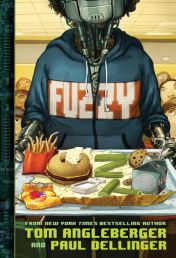I was reading determinedly, hoping that the book would somehow become, a marvelously different animal. After a certain point, my eyes refused to march across the page. My intelligence had been insulted, and I felt like I had been insulted on a personal level. Romance novels are about women and for women – some of the time. Some of the time, the male character reads less like a hero and more like a two-bit mobster: cartoonish, selfish, and violent.
 Johanna Lindsey’s Home for the Holidays was repugnant. It’s one thing if the book is bad – that can be a great thing comedically, as I hope I have shown – but when a book crosses a line and is not merely bad, but also showcases attitudes and behaviors that are flatly bad for society, I can’t be a party to it.
Johanna Lindsey’s Home for the Holidays was repugnant. It’s one thing if the book is bad – that can be a great thing comedically, as I hope I have shown – but when a book crosses a line and is not merely bad, but also showcases attitudes and behaviors that are flatly bad for society, I can’t be a party to it.
The main character is the man: he is described several times over a fraction of the book as “emotionless,” “soulless,” and “without conscience.” Feelings are associated with pain, pain accrued in childhood. We can only assume that this was one seriously abused kid – but some abused children become abusers too, following the only example they have known.
This particular man is bent on revenge for revenge’s sake, for wrongs that might not have occurred to a brother he doesn’t have any particular feelings about. He shouldn’t have a horse in the race, and yet he does. He ruins the company of his brother’s rival business and then buys out the family home while the proprietor is gone, leaving his two children practically on the street.
Cuddly.
This book could still be saved – we could learn about the small acts of kindness he does, his second thoughts on his actions, his redeeming characteristics. He could be nice to dogs. He could give the ruined family a second chance. He could find Jesus and start feeding the hungry. There are loads of options for this kind of story, and some of them have been done. But Lindsey appears not to think anything is wrong with her anti-hero.
This guy gets one look at the daughter and thinks, “I want to have sex with that one.” She’s never spoken to him, never even known of his existence in any solid way. He then decides to move the daughter and sickly younger son into his sumptuous town house and manipulate the crap out of the situation until she gives into his magnetic sexual charm. (I have met these dweebs in real life, and the one thing they never have is charm, sexual or otherwise.)
The woman here barely gets any lines, so we don’t really know how she feels about her slice of life, but we do get the inner monologue of her male counterpart:
He’d noticed her nervousness as well as her shyness, or rather her disinclination to look at him directly, and in his experience, there was only one reason for that…
He decided that anything would be permissible in this situation. He would be absolutely ruthless about it if he had to be. For once, having a lack of emotion and conscience was going to be quite beneficial. (32-33)
We’re going to take a stage break while I swallow some water and not a little bile.
 I read another seven pages, but there was nothing for it. I dropped the book as though it had burned me. It’s not like I haven’t come across others like this: one of the memorable ones was Catherine Coulter’s second book, The Rebel Bride. The Amazon reviews for this book – even the positive ones, shockingly enough – all use the word ‘rape.’ Some people discount the material in the story as a rookie writing in a different time, but rape is rape, no matter when it happens. The problem is that this rape was supposed to be happening between people falling in love, one with tears streaming down her cheeks. The rushed happy ending smacks more of Stockholm’s Syndrome than ever after.
I read another seven pages, but there was nothing for it. I dropped the book as though it had burned me. It’s not like I haven’t come across others like this: one of the memorable ones was Catherine Coulter’s second book, The Rebel Bride. The Amazon reviews for this book – even the positive ones, shockingly enough – all use the word ‘rape.’ Some people discount the material in the story as a rookie writing in a different time, but rape is rape, no matter when it happens. The problem is that this rape was supposed to be happening between people falling in love, one with tears streaming down her cheeks. The rushed happy ending smacks more of Stockholm’s Syndrome than ever after.
There’s a very thick line between writing a strong commanding man, whose masculinity is not marred in any way by his affection and respect for his partner, and a man who relies on force of will and violence to get his way. One man is a hero, and the other is a villain. So why do we keep on casting shitty people as leading men?
You can forgive writers for espousing the fantasy of the passive female sex partner. You can take a woman today, who still has the lion’s share of the cooking, cleaning, laundry, childcare, and chauffeuring, and tell her that for a few minutes she can actively participate in a pleasurable activity without first arranging everything. The onus of the decision-making and action is taken away – until, that is, she’s finished and realized the cat has thrown up on the living room carpet again.
That’s understandable, because within the confines of a loving bond, having times when one partner has less control is perfectly acceptable – so long as consent is very clearly given for every act.
Rape, machismo, and complete female powerlessness isn’t sexy and I certainly don’t comprehend it.
So why do so many women write and fantasize about it?
It’s the problem so many of us have had with 50 Shades of Grey – a book and a series made possible by the very romance novels that have sparked this tirade – that a storyline about removing a woman’s decision-making capabilities is positive and sexual. It’s why the world of BDSM rose up against 50 Shades: while BDSM can get pretty intense, permission is necessary for each step, people use safe words, and everyone is meant to have fun. This is a duality shown in romance novels too: most romance novels manage good(ish) characters and decent(ish) plots, with women who say “YES!” to sex in some definite way – and some…don’t.
Why fantasize about removing all of your agency, your character? And not just sexually?
It seems to me that a harmless fantasy between consenting adults has, in far too many cases, been taken to a disturbing level. Extreme sex tends to be good for one side and not the other; putting it in a good light can make it socially acceptable. That makes these kinds of romance novels inherently dangerous.
Catherine Coulter’s book ended up in the fire, and I’ll never read her material again.
The same will happen for Home for the Holidays.
We have to decide when it’s too much, and then we have to kill these terrible social influences: because a woman reading this book can internalize that these behaviors are good, and because a woman can become a victim without realizing it is happening.
Fuck that.






